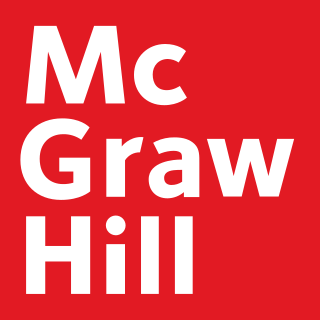Optical mark recognition (OMR) collects data from people by identifying markings on a paper. OMR enables the hourly processing of hundreds or even thousands of documents. For instance, students may remember completing quizzes or surveys that required them to use a pencil to fill in bubbles on paper. A teacher or teacher's aide would fill out the form, then feed the cards into a system that grades or collects data from them.

The Education Program for Gifted Youth (EPGY) at Stanford University was a loose collection of gifted education programs formerly located within Stanford Pre-Collegiate Studies program. EPGY included distance and residential summer courses for students of all ages. Many of the courses were distance learning, meaning that courses were taught remotely via the Internet, rather than in the traditional classroom setting. Courses targeted students from elementary school up to advanced college graduate. Subjects offered included: Mathematics, English, Humanities, Physics, and Computer Science. Stanford Pre-Collegiate Studies is similar to the Center for Talented Youth at the Johns Hopkins University in terms of certain objectives. The EPGY courses themselves were offered by a number of institutions including Stanford and Johns Hopkins.
Renaissance Learning, Inc. is a software as a service and learning analytics company that makes cloud-based, Pre-K–12 educational software and adaptive assessments. Renaissance employs about 1,000 employees in nine U.S. cities and subsidiaries in Canada, the United Kingdom, Korea, and Australia. Renaissance's solutions are used in one-third of U.S. schools and more than 90 countries around the world.
Edu-Ware Services, Inc. was an educational and entertainment software publisher established in 1979 by Sherwin Steffin and Steven Pederson. It was known for its adventure games, role-playing video games, and flight simulators for the Apple II series of computers.
Pearson Education, known since 2011 as simply Pearson, is the educational publishing and services subsidiary of the international corporation Pearson plc. The subsidiary was formed in 1998, when Pearson plc acquired Simon & Schuster's educational business and combined it with Pearson's existing education company Addison-Wesley Longman. Pearson Education was restyled as simply Pearson in 2011. In 2016, the diversified parent corporation Pearson plc rebranded to focus entirely on education publishing and services, and as of 2023 Pearson Education is Pearson plc's main subsidiary.
SCORE! Educational Centers, was owned by Kaplan, Inc., which is a subsidiary of Graham Holdings Company, and was a United States provider of customized supplementary education and one-on-three tutoring services for children in kindergarten through ninth grade. SCORE! offered materials in multiple subjects, including reading, mathematics, language arts, and writing. In 2009, all SCORE! centers were closed or converted to Kaplan centers.
Robert "Bob" O'Rear is a former employee of Microsoft, and is among the group of eleven early Microsoft employees who posed for a company photo taken in Albuquerque in 1978. A Texan, he has degrees in mathematics and physics. He left Microsoft in 1993, and reportedly owns a cattle ranch in Texas.
Since the rise of the personal computer in the 1980s, IBM and other vendors have created PC-based IBM-compatible mainframes which are compatible with the larger IBM mainframe computers. For a period of time PC-based mainframe-compatible systems had a lower price and did not require as much electricity or floor space. However, they sacrificed performance and were not as dependable as mainframe-class hardware. These products have been popular with mainframe developers, in education and training settings, for very small companies with non-critical processing, and in certain disaster relief roles.
Patrick Colonel Suppes was an American philosopher who made significant contributions to philosophy of science, the theory of measurement, the foundations of quantum mechanics, decision theory, psychology and educational technology. He was the Lucie Stern Professor of Philosophy Emeritus at Stanford University and until January 2010 was the Director of the Education Program for Gifted Youth also at Stanford.

Core-Plus Mathematics is a high school mathematics program consisting of a four-year series of print and digital student textbooks and supporting materials for teachers, developed by the Core-Plus Mathematics Project (CPMP) at Western Michigan University, with funding from the National Science Foundation. Development of the program started in 1992. The first edition, entitled Contemporary Mathematics in Context: A Unified Approach, was completed in 1995. The third edition, entitled Core-Plus Mathematics: Contemporary Mathematics in Context, was published by McGraw-Hill Education in 2015.
Edmark Corporation was a publisher of educational print materials and an educational software developer in Redmond, Washington. They developed software for Microsoft Windows and MacOS in several languages and sold it in over a dozen countries.
TerraNova is a series of standardized achievement tests used in the United States designed to assess K-12 student achievement in reading, language arts, mathematics, science, social studies, vocabulary, spelling, and other areas.
Macmillan Inc. was an American book publishing company originally established as the American division of the British Macmillan Publishers. The two were later separated and acquired by other companies, with the remnants of the original American division of Macmillan present in McGraw-Hill Education's Macmillan/McGraw-Hill textbooks, Gale's Macmillan Reference USA division, and some trade imprints of Simon & Schuster that were transferred when both companies were owned by Paramount Communications.
Maxwell Communication Corporation plc was a leading British media business. It was listed on the London Stock Exchange and was a constituent of the FTSE 100 Index. It collapsed in 1991 following the death of its titular owner.
ALEKS is an online tutoring and assessment program that includes course material in mathematics, chemistry, introductory statistics, and business.
DRC/CTB (CTB) was a publisher of educational assessment for the early learner, K–12, and adult basic education markets. DRC/CTB was a division of Data Recognition Corporation (DRC) until being fully merged into DRC's Educational Services division. From 1965 to 2015, the company was known as CTB/McGraw-Hill, a division of the McGraw-Hill companies, and prior to 1965 California Testing Bureau was an independent company.
David Coleman is an American businessman, currently serving as the ninth president of the College Board, a non-profit organization that designed the SAT exam, SAT Subject Tests, and Advanced Placement (AP) exams. He is often described in the media as "the architect" of the Common Core State Standards Initiative.

Amplify is a curriculum and assessment company launched in July 2012. Amplify Curriculum was built on the foundation of Wireless Generation, an educational company the original News Corp bought in 2010. Amplify products and services provide assessment and analytics for data-driven instruction and next-generation digital curriculum based on the Common Core State Standards.

McGraw Hill is an American publishing company for educational content, software, and services for pre-K through postgraduate education. It is one of the "big three" educational publishers along with Houghton Mifflin Harcourt and Pearson Education. The company also publishes reference and trade publications for medicine, business, and engineering. Formerly a division of The McGraw Hill Companies, McGraw Hill Education was divested and acquired by Apollo Global Management in March 2013 for $2.4 billion. McGraw Hill was sold in 2021 to Platinum Equity for $4.5 billion.

Gary Bitter is an American researcher, teacher, and author focusing on educational technology. He is Professor of Educational Technology and past Executive Director of Technology Based Learning and Research at Arizona State University. He was a founding board member of the International Society for Technology in Education and served as its first elected president. He is the co-author of the National Technology Standards (NETS) which have been used extensively as a model for National and International Technology Standards.





